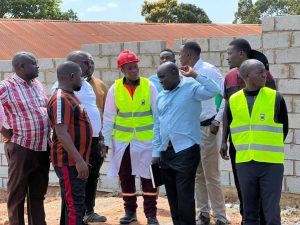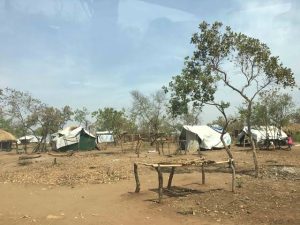Wakiso farmers irrigate crops in rain season, count loses
2 min read
A group of farmers under Magezi-Muliro Farmers’ Association, which received the pilot demonstration mini irrigation scheme in Mabwombe Village in Mende Sub County in Wakiso District, are crying foul after losing their crops to heavy rains.
Although irrigation is practiced during the dry season, URN has learnt that the have been irrigating their plants in rainy season. Irene Nabukeera, the leader of the twelve affected farmers, says that they irrigated their crops during the first days of the rain season with an assumption that rains would be intermittent.
She says they had planted high-value crops including Sukuma wiki, green pepper, and cabbage, watermelons, eggplant, tomatoes and onions among others. She however, the crops were swept by rains leaving the land bare.
Nabukeera couldn’t explain whether they received technical advice on irrigation. She instead argued that since the rains have been irregular in some past seasons, they thought that it may delay or be little.
She however, says that by the time they realized that rains were serious, it was too late.
Eng. Nicholas Lubanga, one of the officials from the Water and Environment Ministry overseeing the project, says the mistakes that lead to loss of the crops could be expected since it was the first time for the farmers to interface with irrigation technology.
He said that although the project is under the Environment Ministry, they had advised farmers to seek technical support from extension workers on the best practices.
armers on how to use the irrigation scheme for the betterment but he was equally surprised that farmers could irrigate during a known rain season.
Lubulwa says as climate change effects are becoming real in Uganda with prolonged droughts and dry spell, the intervention of irrigation is inevitable. He however, says there is need to equip farmers with skills and knowledge of applying the technology if they are to benefit.
Mabwombe scheme is one of the several irrigation schemes that were put in several parts of the country by the Water and Environment Ministry. The project, whose intention is to help in teaching farmers and disseminating information on irrigation technology, is valued at over Shilling 450 million.
Several mini irrigation schemes have been constructed in Kasese, Lira, and Soroti districts among other parts of the country. The most recent one is situated in Mityana District.





